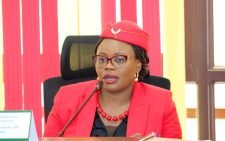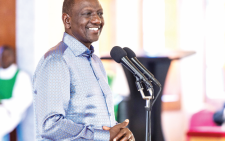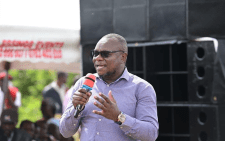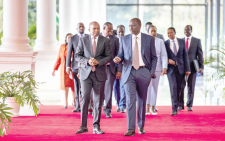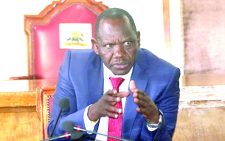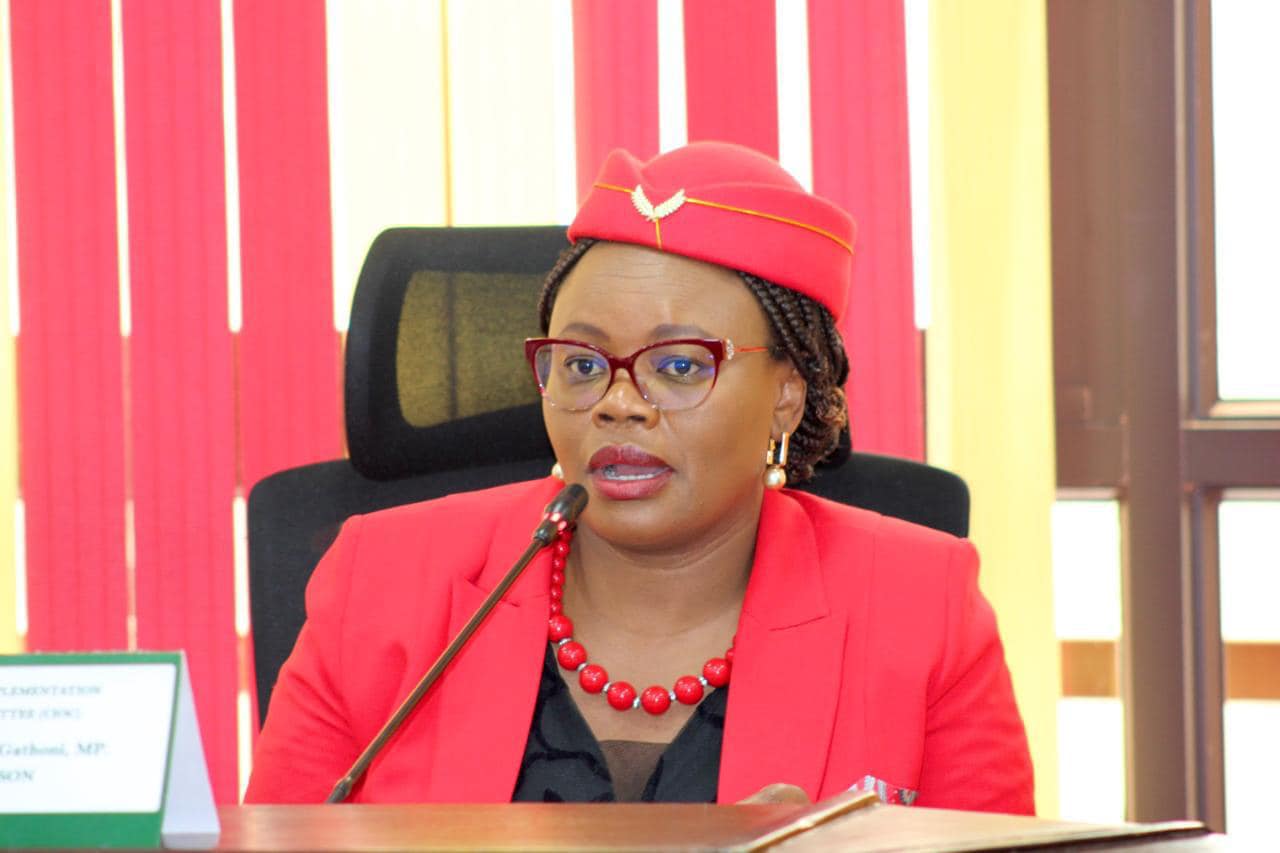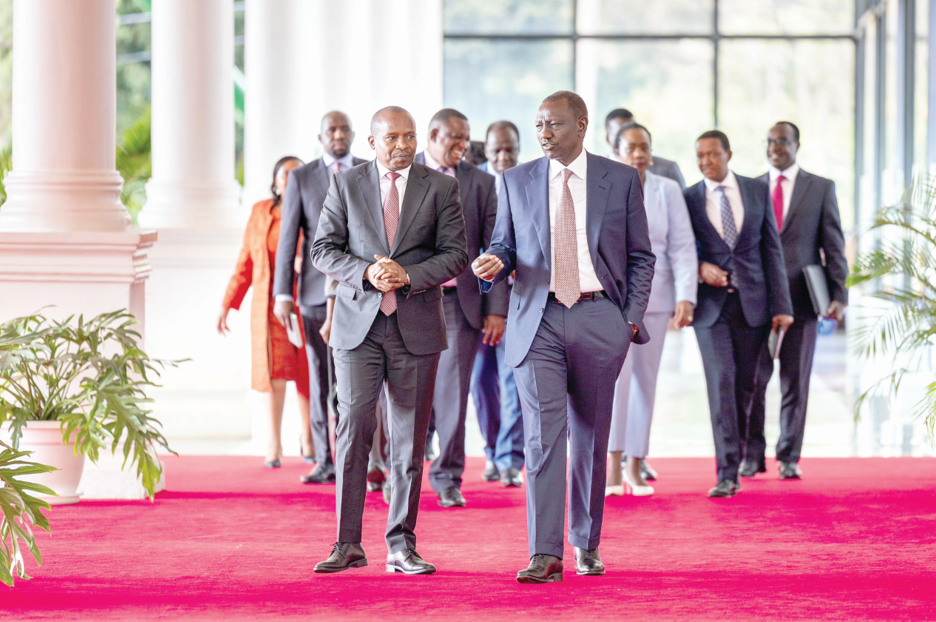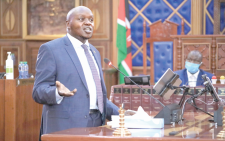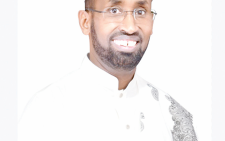A clique of President William Ruto’s economic advisers are on the spot over a litany of blunders that have seen courts and MPs shoot down his key economic initiatives.
The series of blows to Ruto’s economic blueprint has brought into sharp focus the role of the much hyped presidential Council of Economic Advisers, a cabal of well connected men and women who collectively pocket a whopping Sh1.1 billion annually on salaries, travel expenses, and entertainment.
Questions are being raised about the quality and legality of some key economic blueprints advanced by the advisers.
The most prominent is the chair of the council, David Ndii, and former Cabinet minister Henry Rotich, Ruto’s adviser on budget and fiscal policy.
Uhuru Kenyatta-era Trade Cabinet Secretary Adan Mohammed, previously a member of the council, was promoted to a higher role as chief of strategy execution in the Kenya Kwanza government, placing him at the heart of key decisions, mainly relating to the economy.
Entertainment allowances
Others include Augustine Cheruiyot (agribusiness and finance), Prof Abdi Guliye (animal production), Dr Dominic Menjo (food security and animal production), Dr Nancy Laiboni (agricultural economics), Henry Kinyua (crops/value chains) and Steven Otieno (cooperatives).
Guliye, a former member of the electoral agency IEBC, had not been publicly revealed before as a Ruto adviser.
The role of the council in formulating Ruto’s economic policies has come under scrutiny at a time the President is battling the worst economic storms in the country’s history, with most of his initiatives being shot down by Parliament and courts.
In an online engagement with netizens in May, Ndii casually stated that his team was entitled to the entertainment allowance as it also catered for their meetings.
“Our job entails policy development and implementation oversight. That means convening meetings typically 3-4 per day with 10-30 people each. The biggest facility in our office is boardrooms,” he said.
Ndii touted the advisers as the vision carriers of the government, because they are the drafters of the Kenya Kwanza manifesto, thus they have a better understanding of how to implement it than even the Cabinet secretaries.
Economic irregularities
Experts now argue that Ruto’s administration is committing grievous economic irregularities that will be a recipe for more court cases by implementing the budget without a legal finance Act to guide the collection of revenue through taxation.
With President Ruto’s economic transformation strategies stymied by court rulings and Parliament decisions, the hands of his advisers appeared tied, with Ndii indirectly slamming Kenyans online over the people they vote for.
“Go drying. This Chapter was in force when you decided to elect ICC inductees. We are finishing the journey,” Ndii told one of his followers on X who had posted a screenshot of Chapter Six of the Constitution on leadership and integrity of public servants.
In another instance, the Oxford University-educated adviser linked corruption to some of the economic decisions, subtly implying that their advice could have been ignored by the government.
Ndii, in one of his regular reminders on X, wrote: “We will leave Kenya as corrupt as we found it. On this Sunday I suggest you contemplate your own life and leave the other sinners to contemplate theirs.”
On the Adani-Kenya Airports Airports deal, Ndii posted thus: “People with $billions to invest don’t pay bribes. They are spoilt for choice. Governments beg them to invest in their countries.
Do you think Adani has bribed China, Vietnam and Israel?”
Moses Shauri posed: “How many members of staff does his office have? Does the President’s economic adviser need bodyguards, drivers cooks, gardeners. All these just to advise the President?”
“10 Cabinet Secretary/Principal Secretary level advisers of which 5 PhDs (4 professors) and 15 support staff with zero bodyguards,” Ndii promptly hit back.
“By your own admission if all those advisers exist in Agriculture. Why then do we need two CASs for both State Departments of Agriculture and Livestock Development that have their own PSs in charge?” Jude Owuor followed.
To this, the economist posed: “Why do CEOs of companies like Safaricom and Equity that have top $ managers also retain expensive consultants? Why do Fortune 500 companies pay just three consulting firms McKinsey, Boston Consulting and Bain $30b a year?”
Eye of a storm
The government, and President Ruto in particular, is now in the eye of a storm over the controversial deal to lease Jomo Kenyatta International Airport (JKIA) for Sh258 billion to the Adani Group, sparking outrage among Kenyans.
The National Assembly’s Public Investments Committee on Commercial Affairs and Energy ordered the KAA to stop the deal until the Auditor General conducts a forensic audit to establish how Adani was awarded the tender.
During the session which was attended by National Treasury Cabinet Secretary John Mbadi, MPs questioned why the Adani Group had suddenly acquired stakes in critical public sectors like health and energy.
Earlier this month, the court halted the proposed lease of JKIA to Adani pending the determination of a case filed by the Kenya Human Rights Commission and the Law Society of Kenya over the deal.
It has since emerged that among the faces behind the secretive deal is one Adil Arshed Khawaja, a one-time Safaricom board chair, a man who doesn’t shy away from invoking his closeness to the President.
Adil played a key role in ensuring the deal was sealed. The controversy has also sucked in President Ruto’s son, Nick, a lawyer employed at Adil’s law firm.
Another blow
On Tuesday this week, Ruto suffered another blow after the High Court declared the Privatization Act unconstitutional.
Justice Chacha Mwita accused Ruto of violating the constitutional rights of Kenyans by signing the Privatization Bill, 2023 into law although the National Assembly had not subjected it to adequate public participation.
“The Constitution is the supreme law, and the public must be involved in public participation. The National Assembly does not do the public any favour by inviting them to participate. It must openly conduct its business,” Justice Mwita ruled.
In the case, Raila Odinga’s Orange Democratic Party (ODM) and the Katiba Institute opposed any sale of public assets to private companies, noting that they form part of the sovereign wealth of Kenya and have significant cultural and strategic importance to the public.
Ruto signed the privatization law in October hoping to trade off some of Kenya’s iconic assets including Kenya International Convention Centre), Kenya Pipeline Company, New Kenya Cooperative Creameries, Kenya Seed Company, Kenya Literature Bureau, and the National Oil Corporation of Kenya.
“The net effect of the Privatisation Act is to grant the Executive arm of government sweeping powers to dispose of prized assets comprised of Kenya’s sovereign wealth,” ODM told the court.
“In passing the impugned Act, the National Assembly and the President failed in there to protect and uphold the sovereignty of the People of Kenya.”
A day later, the government also admitted that it was unable to recover Sh13 billion advanced to Kenyans by the much hyped Hustler Fund, a key pillar of President Ruto Bottom-Up Economic Blueprint.
Co-operatives Cabinet Secretary Wycliffe Oparanya revealed that 22.8 per cent of total loans advanced had not been repaid, a situation he said was worrying and likely to negate the key purpose of the fund if not tamed.



